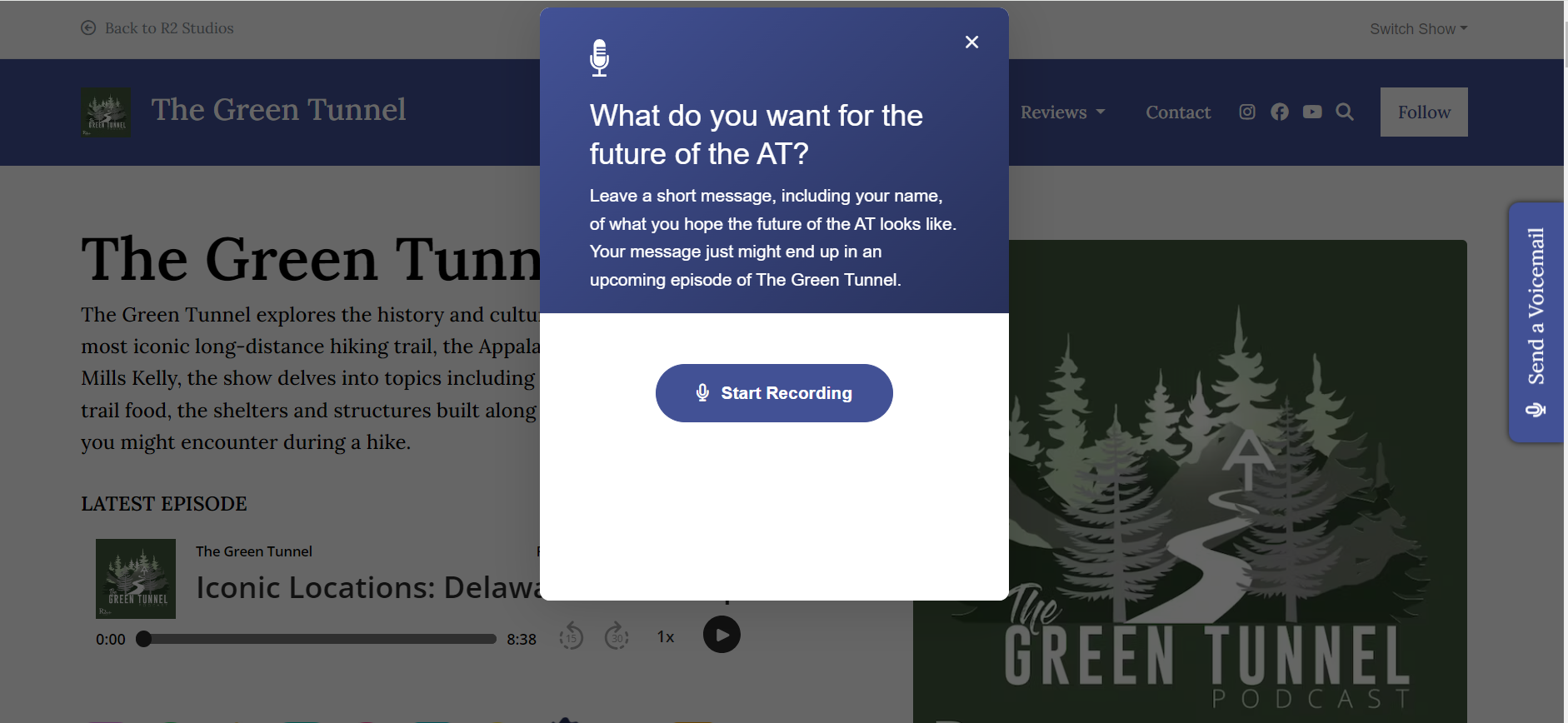The End of Our Hike
Every hike has a beginning, a middle, and an end. Some are short, some are long. In the case of the Appalachian Trail, one of those hikes can last less than an hour, or it can stretch almost 2,200 miles. On October 5, 2021, the team at RRCHNM’s R2 Studios began our journey through the history of America’s most iconic long distance hiking trail with episode one of The Green Tunnel podcast. Over the past three years we’ve made more than 40 episodes of original content on this complex history and our listeners have downloaded those episodes more than 160,000 times.
Along the way we’ve touched on favorite topics in the hiking community – the history of gear, of trail food, of trail shelters, and even of the trailside privies. But we’ve also tackled the hard topics as well – the often-difficult ways that race has been and remains a part of the trail’s history, the story of those displaced from the mountains to make way for our national parks, and the persistence of Indigenous peoples and their cultures along the trail.
All of our projects here at RRCHNM are educational opportunities for our students and I’m especially proud that The Green Tunnel podcast was offered so many of our students a chance to learn about podcasting through doing podcasting. Nine different students, eight graduate students, one undergraduate, researched and produced episodes for the show. I just narrated what they wrote.
It’s been a great ride these past three years bringing this show from an idea I cooked up with our former colleague Dr. Abigail Mullen. But every good hike has to come to an end. Over the next few months the final episodes of The Green Tunnel will drop into your podcast feeds. We’re sad, of course, because it’s been so much fun creating this show. But we also realize that we’ve told the story of the Appalachian Trail. Rather than trying to dig for smaller and smaller bits of that story, we’re going to wrap up the show later this spring.
You can help us with our final episode. It will be about the future of the AT, not its past, and we’d like to hear from you about what you think about the future of this remarkable trail. We’ve set up a voicemail link on over on r2studios.org where you can leave us your thoughts on the future of the trail. To fit as many voicemails as possible into our final episode, we’re asking that you try to limit your message to about 30 seconds.

One of the great things about the digital world we live in is that projects like The Green Tunnel podcast live on for a very long time, available for new listeners who find their way to the show from whatever podcast platform they use. All of us hope that people keep listening for years to come. But we also hope that this show will serve as an example to future history podcasters of how to produce a show that introduces thousands and thousands of people to a history they were either unaware of or knew only bits and pieces of.
As we close out the show, we also want to offer a huge thank you to our primary supporters in this endeavor. The Andrew W. Mellon Foundation gave us the seed money to stand up our studio, the Appalachian Trail Conservancy gave us early and ongoing exposure in their social feeds and their staff was always available to answer a question from our team. More than 100 people—hikers, trail club volunteers, biologists, writers, and historians—agreed to be guests on our show. And finally, dozens of individual donors sent us generous donations to support this work. From all of us, thanks to every single one of you.
